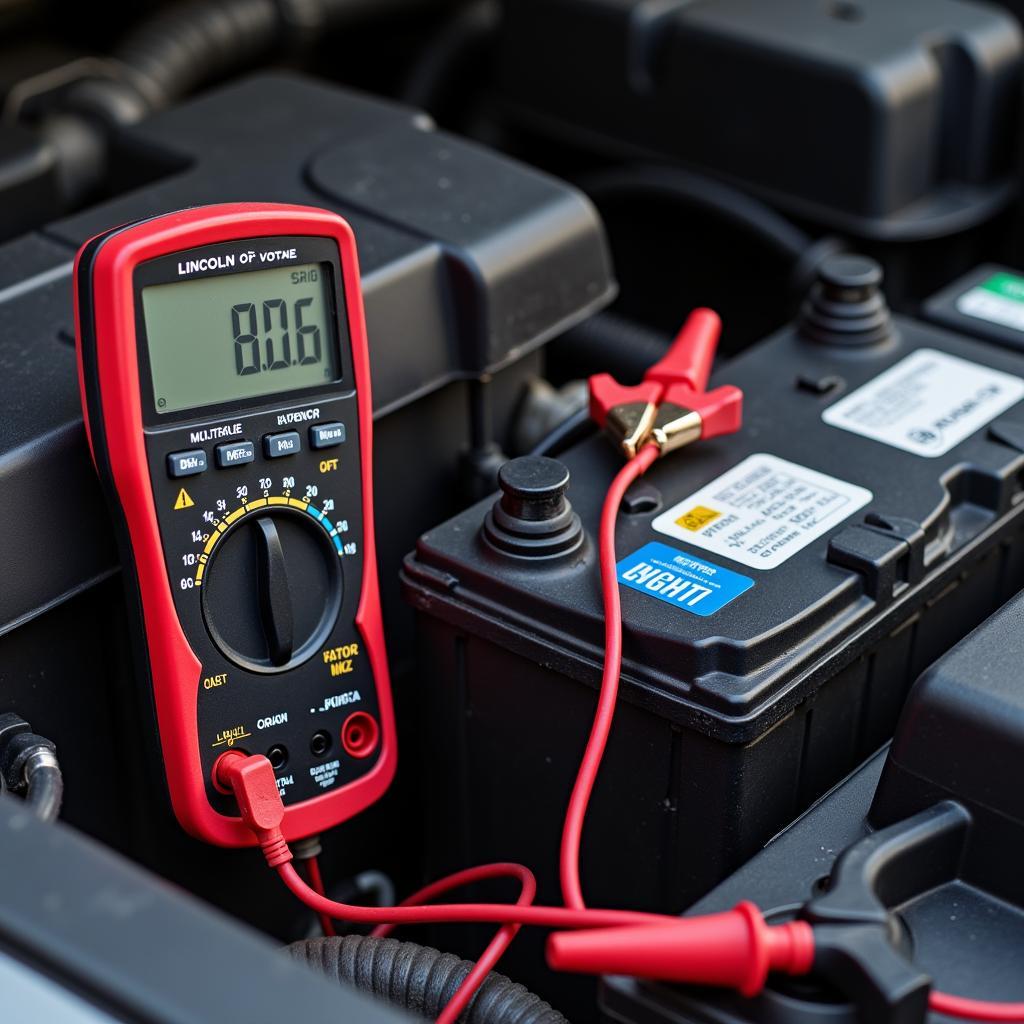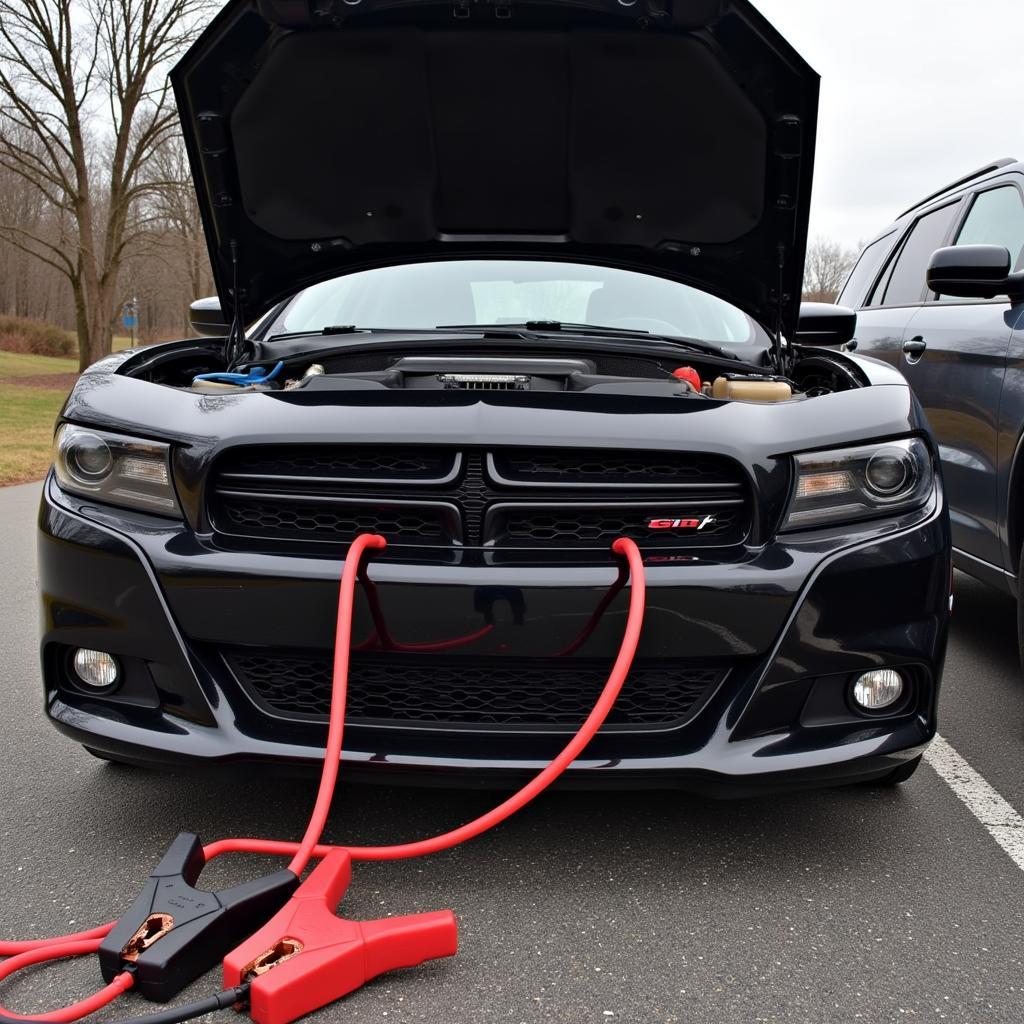Lincoln MKZ battery problems can be a frustrating experience, leaving you stranded and unsure of what to do. Whether you’re dealing with a slow crank, dimming headlights, or a completely dead battery, understanding the potential causes and solutions can save you time and money. This guide will walk you through common Lincoln MKZ battery issues, diagnostics, and solutions, including remote software fixes and programming options. battery charger for completely dead battery
Common Lincoln MKZ Battery Problems
Several factors can contribute to Lincoln MKZ battery problems. These range from simple issues like loose connections to more complex problems requiring professional diagnostics and repair. Some of the most common problems include:
- Dead Battery: A completely dead battery is often the most obvious sign of a problem. This might be indicated by no lights, no crank, and no response from the car’s electrical system.
- Slow Crank: If your engine cranks slowly when you try to start it, this can signify a weak or dying battery.
- Dim Headlights: Dimming headlights, especially when other electrical accessories are in use, can be a sign of low battery voltage.
- Electrical System Malfunctions: Problems with the car’s electrical system, such as a faulty alternator or parasitic drain, can also lead to battery issues.
- Clicking Sound When Starting: A rapid clicking sound when turning the key often indicates a low battery charge, insufficient to engage the starter motor.
will a battery charger charge a completely dead battery
Diagnosing Lincoln MKZ Battery Problems
Diagnosing the root cause of your Lincoln MKZ battery problem is crucial for effective repair. Here’s a step-by-step guide:
- Visual Inspection: Check the battery terminals for corrosion or loose connections. Clean the terminals with a wire brush and baking soda solution if necessary.
- Battery Test: Use a multimeter or battery tester to check the battery voltage. A fully charged battery should read around 12.6 volts.
- Alternator Test: With the engine running, the alternator should be producing around 13.5-14.5 volts. A lower reading indicates a potential alternator problem.
- Parasitic Drain Test: This test involves measuring the current draw with the ignition off to identify any electrical components drawing excessive power and draining the battery.
 Lincoln MKZ Battery Test
Lincoln MKZ Battery Test
Solutions for Lincoln MKZ Battery Problems
Once you’ve diagnosed the problem, you can explore the appropriate solutions.
- Jump Starting: For a dead battery, jump-starting can get you back on the road temporarily.
- Battery Replacement: If your battery is old or failing, replacement is the best option.
- Alternator Repair/Replacement: A faulty alternator will require repair or replacement to ensure proper battery charging.
- Addressing Parasitic Drains: Identify and fix any electrical components causing parasitic drains. This might involve replacing faulty modules or wiring.
- Remote Software Updates: In some cases, software issues within the car’s electrical management system can contribute to battery problems. Remote software updates, performed by qualified technicians, can address these issues.
- Remote Programming: Certain modules, like the battery management system (BMS), might require remote programming to ensure proper function after a repair or replacement.
jumping starting a dead battery
“A common misconception is that just replacing the battery solves all battery-related issues. Often, the underlying cause, like a faulty alternator or a parasitic drain, needs to be addressed to prevent future problems,” says John Stevenson, Senior Automotive Electrical Engineer.
Remote Diagnostics and Programming
Remote diagnostics and programming are increasingly valuable tools for addressing Lincoln MKZ battery problems. These technologies allow technicians to access and analyze vehicle data remotely, often identifying issues that might be difficult to pinpoint otherwise. They can also perform software updates and programming adjustments remotely, saving time and inconvenience for the car owner.
“Remote diagnostics and programming are revolutionizing automotive repair. We can now identify and fix problems more efficiently, often without the customer even needing to bring their car to the shop,” adds Maria Sanchez, Lead Diagnostics Technician.
will a car battery go bad from sitting
Conclusion
Lincoln MKZ battery problems can range from simple to complex. Understanding the common causes, diagnostic procedures, and solutions can empower you to address these issues effectively. Remote software updates and programming, combined with traditional repair methods, offer comprehensive solutions for ensuring your Lincoln MKZ’s electrical system functions reliably. Don’t let Lincoln MKZ battery problems leave you stranded – take proactive steps to ensure your car starts and runs smoothly every time.
car battery dead cell symptoms
FAQ
- How often should I replace my Lincoln MKZ battery? Typically, car batteries last 3-5 years.
- What causes a parasitic drain on a Lincoln MKZ? Faulty modules, interior lights left on, or aftermarket accessories can cause parasitic drains.
- Can I jump-start a Lincoln MKZ with a completely dead battery? Yes, you can jump-start it using jumper cables and another vehicle or a portable jump starter.
- How do I know if my Lincoln MKZ alternator is bad? Dim headlights, slow cranking, and a battery warning light are signs of a bad alternator.
- Are remote software updates expensive for a Lincoln MKZ? Costs vary depending on the specific update and the service provider.
- Can I perform remote programming on my Lincoln MKZ myself? Remote programming typically requires specialized equipment and software, best handled by qualified technicians.
- What should I do if my Lincoln MKZ battery keeps dying? Have a professional diagnose the problem to identify the underlying cause. It could be a bad battery, alternator, or a parasitic drain.


